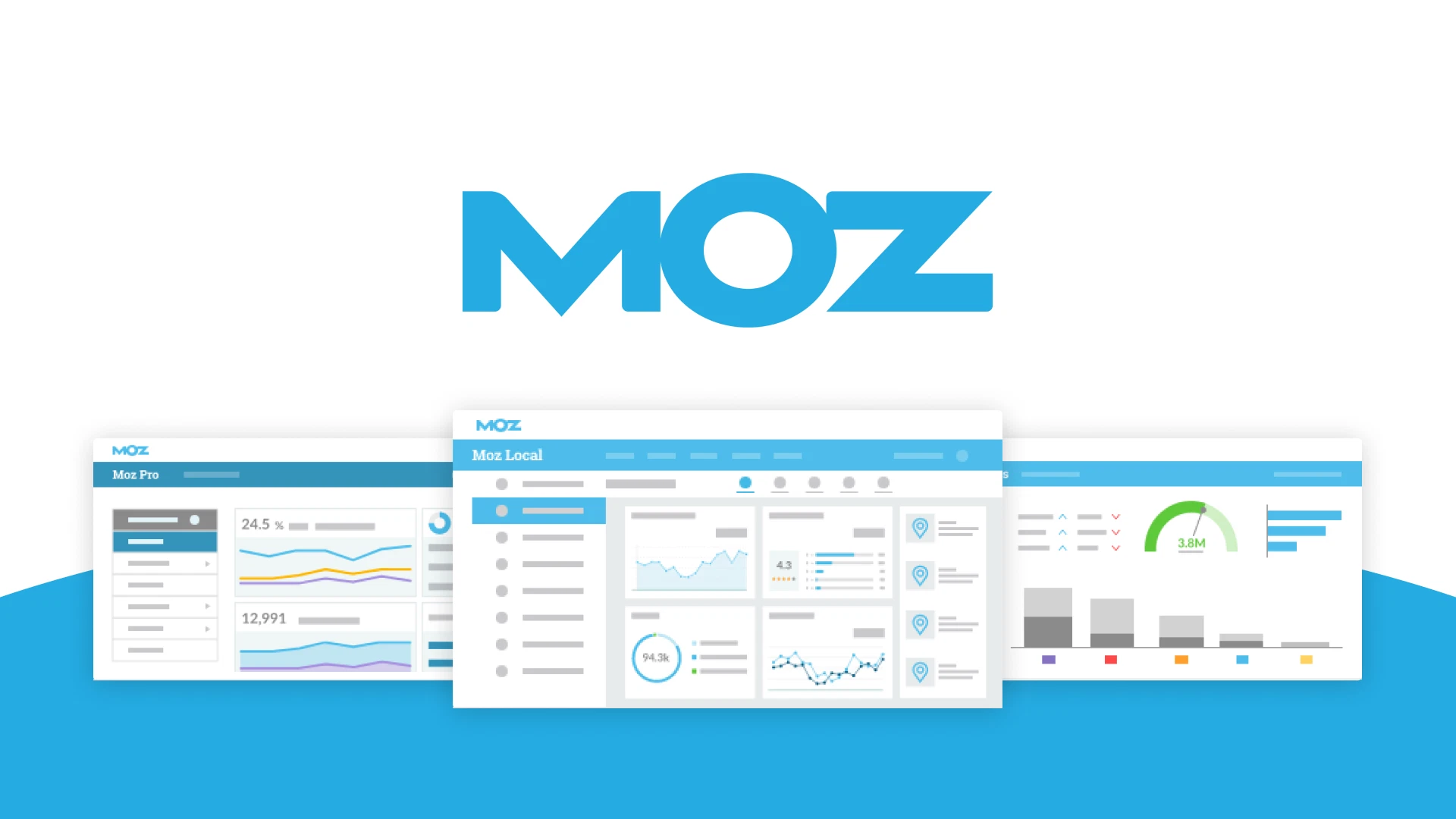In the digital age of local SEO Specialists, where the internet is the first stop for information, products, and services, visibility is paramount. Among the unsung heroes working behind the scenes to ensure this visibility are these professionals, strategists and technicians who optimize websites so that they perform well in search engine rankings. Their work plays a crucial role in helping businesses grow, engage audiences, and outpace the competition. At its core, SEO, or Search Engine Optimization, is the practice of enhancing a website’s visibility on search engines like Google, Bing, and others.
Table of Contents
ToggleLocal SEO Specialists
When a person searches for something online, they are more likely to click on one of the top results. Local SEO specialists work to make sure that their client’s website appears as close to the top of those results as possible for relevant queries. This is no small task. Search engines use complex algorithms that evaluate hundreds of factors when determining rankings. An SEO specialist must understand these algorithms, at least to the extent they are publicly or indirectly known, and tailor websites accordingly. Their responsibilities can be broadly categorized into three main areas.
On-Page SEO involves optimizing the content and HTML source code of a webpage. Local SEO Specialists tasks here include keyword research and implementation, improving meta tags, structuring content for readability, and ensuring the site is mobile-friendly and fast-loading. Off-Page SEO refers to actions taken outside the website to improve its ranking. The primary method is link building, acquiring backlinks from reputable websites to increase the site’s authority. Social media marketing and influencer outreach can also play supporting roles.
Technical SEO includes server-side optimizations and site architecture enhancements that help search engines crawl and index the site more effectively. Examples include XML sitemap creation, fixing broken links, optimizing page speed, and ensuring proper use of canonical tags. Local SEO specialists are not just marketers, but they’re also data analysts, researchers, and even content strategists. They must have a solid grasp of how search engines work, an analytical mindset, and the ability to interpret data from tools such as Google Analytics, Search Console, SEMrush, Ahrefs, and Moz.
Beyond tools, soft skills are equally important. Communication is vital, especially when SEO professionals are working with content creators, web developers, and stakeholders who may not understand the technical intricacies of SEO. Patience and adaptability are also essential, as SEO is a long-term game that requires consistent effort and is subject to frequent changes in search engine algorithms. One of the most challenging aspects of being an SEO specialist is keeping up with change. Search engine algorithms are constantly updated, sometimes with significant impacts on website rankings.
What worked last year, or even last month, might not be effective today. For example, practices like keyword stuffing or using low-quality backlinks, once common, are now penalized. Voice search, AI-driven search engines, mobile-first indexing, and user experience signals like page speed and bounce rate are all influencing strategies nowadays. Local SEO specialists must remain agile, continually learning and adapting their strategies to stay effective. Another trend reshaping the field is the now increasing importance of user intent.
Search engines are getting better at understanding not just the words a person types, but what they actually mean. Local SEO specialists are shifting from a keyword-heavy approach to a more holistic understanding of the user journey, optimizing for content relevance and quality over raw keyword density. More than just increasing web traffic, good SEO brings in qualified traffic, users who are actively seeking what a business offers. It aligns closely with user intent, making it a cost-effective channel for lead generation and brand awareness.
Unlike paid advertising, the benefits of SEO tend to compound over time, delivering long-term value. For businesses, having an SEO specialist on the team, or partnering with one externally, can mean the difference between online obscurity and being a market leader. They ensure that marketing investments in content, website design, and user experience pay off in visibility and discoverability. Local SEO specialists are critical players in the digital ecosystem. Their role demands a unique blend of technical knowledge, strategic thinking, and continuous learning.
As search engines evolve and the competition for digital attention intensifies, the work of local SEO specialists will only become more vital. They are, in many ways, the architects of online success, building the bridges that connect people to the content, products, and services they seek.
In an era dominated by digital interactions, the vast web of online content continues to expand at an unprecedented pace. Every second, thousands of websites are launched, blog posts are published, and products are listed across e-commerce platforms. Amid this digital sprawl, standing out becomes not just a challenge but a necessity for businesses and individuals alike. At the heart of this struggle for visibility lies the discipline of Search Engine Optimization (SEO).
It is a multifaceted, ever-evolving craft that seeks to ensure that a website not only exists but thrives in the digital spotlight. Central to this effort are local SEO specialists, professionals whose work remains largely invisible to the casual user but whose influence can determine whether a site is buried in obscurity or ranks at the very top of search engine results.
The role of local SEO specialists today is vastly more intricate than it was just a decade ago. Initially seen as a technical discipline rooted in manipulating metadata and keyword placement, search engine optimization has matured into a strategic, data-driven field that encompasses user behavior, content quality, web performance, and the larger business goals of an organization. Local SEO specialists blend creative thinking with analytical rigor, all while adapting to the continuous changes rolled out by search engine companies like Google.
With each algorithm update, strategies of SEO must pivot, slightly or radically, requiring professionals to not only stay current but to anticipate shifts and trends. To understand the full weight of their contribution, one must first consider how search engines operate. When users type a query, complex algorithms get to work, scanning billions of web pages in a matter of milliseconds to deliver the most relevant, authoritative, and useful results.
For a business hoping to reach these users, showing up on the first page of results can be the difference between robust traffic and digital invisibility. Local SEO specialists engineer this visibility. They delve into search intent, the technical structure of websites, quality and context of content, and a site’s authority in its niche, all to align with the ever-changing criteria search engines use to evaluate and rank content.
A common misconception about SEO is that it’s solely about keywords. While keyword research and optimization remain vital, they are now just one part of a broader, more sophisticated strategy. On-page search engine optimization, for instance, covers everything from ensuring logical URL structures and implementing appropriate header tags to optimizing images, ensuring responsiveness across devices, and creating content that genuinely answers the questions users are asking. It is about shaping every element on a webpage to not only appeal to search engines but to provide a seamless, valuable experience for the user.
Yet optimizing what’s on the page is only part of the puzzle. Off-page search engine optimization, perhaps more nebulous and challenging, deals with how other sites and platforms interact with the content. Here, local SEO specialists work to build backlinks from reputable sources, establish a brand’s credibility across the internet, and foster social signals that indicate trust and relevance. Unlike paid advertising, which stops delivering results once the budget runs dry, off-page SEO efforts like link-building and digital PR can pay for years, gradually compounding the authority and visibility of a site.
Then there’s technical SEO, arguably the most foundational and overlooked aspect of the discipline. A beautifully written, keyword-optimized blog post won’t perform if the site takes too long to load, if search engines can’t crawl it properly, or if its structure confuses indexing spiders. Technical SEO ensures that the architecture of a website is sound, efficient, and accessible. Local SEO specialists work on compressing files, improving server response times, implementing schema markup, and resolving crawl errors. These invisible fixes, though often unnoticed by end-users, can dramatically influence how favorably a site is treated by search engines.
What makes the job of local SEO specialists even more complex is the black-box nature of search algorithms. Companies like Google guard the specifics of their ranking criteria closely. While some ranking factors are publicly confirmed, like mobile-friendliness or page speed, others are derived from ongoing observation, testing, and correlation studies conducted by the community. Local SEO specialists must, therefore, operate with a mix of known practices and educated hypotheses, constantly iterating based on performance data, ranking changes, and new industry findings.
Moreover, the rise of artificial intelligence (AI) in search technology has introduced new variables into the mix. Tools like Google’s BERT and MUM use natural language processing to better understand context and semantics, moving beyond keyword matching to assess the actual meaning behind queries. This development has prompted a philosophical shift in SEO strategy. Rather than chasing precise keyword usage, local SEO specialists must now align content with user intent. It’s about understanding what a person truly wants to know when they search, and delivering that answer thoroughly, credibly, and accessibly.
This emphasis on intent also reshapes how search engine optimization intersects with content creation. Local SEO specialists are increasingly collaborating with writers, editors, UX designers, and developers to ensure that content is not only discoverable but meaningful. They may advise on tone, structure, and format, suggesting the use of FAQs, tables of contents, or interactive tools to enhance usability and engagement. The result is a more cohesive, human-centered web experience where SEO is not a layer added after the fact but a foundational part of the content development process.
It’s also important to consider the broader marketing ecosystem within which SEO operates. As digital marketing grows more integrated, search engine optimization must align with paid media, social media strategy, email marketing, and conversion rate optimization. A campaign to promote a new product launch might involve coordinated blog posts, influencer outreach, paid search ads, and a redesigned landing page, all supported by a strategy that ensures organic discoverability, both during and after the campaign.
This kind of cross-functional collaboration demands strong communication skills from local SEO specialists, who must be able to translate technical requirements into actionable plans for teams across disciplines. Beyond technical skills and strategic vision, what truly defines an exceptional SEO specialist is adaptability. Few fields move as fast or change as frequently. Updates like Google’s Core Web Vitals rollout or the shift toward mobile-first indexing can reshape best practices overnight.
Additionally, external factors, from global shifts in consumer behavior to the rise of new search platforms, add new layers of complexity. Local SEO specialists must be lifelong learners, continually testing, adjusting, and refining their approaches in response to a digital environment that never stands still.
The toolkit of local SEO Specialists is vast and growing. They rely on a range of auditing tools, such as Google Analytics, Search Console, Ahrefs, Screaming Frog, and more, to track performance, uncover issues, and benchmark against competitors. They dissect data sets to determine why a page’s rankings dipped or how users are interacting with different sections of a site. This analytical mindset allows them to make decisions based on evidence rather than intuition, creating strategies that are both measurable and scalable.
The rewards of effective SEO are substantial. Unlike paid media, where traffic disappears when the campaign ends, organic search provides a consistent, compounding source of visibility. A well-optimized page can rank for years, generating traffic and conversions with minimal ongoing investment. This long-term ROI makes SEO an attractive solution for large and small businesses. Whether it’s a multinational brand launching in new markets or a local artisan trying to sell handmade products, the principles of SEO apply universally, and the potential for growth is immense.
Still, SEO is not a silver bullet. It is a slow burn, a game of cumulative gains and long-term strategy. Results often take months to materialize, and the path to success can be fraught with setbacks. Algorithm updates may temporarily disrupt rankings, competitors may invest more heavily in content, and technical issues can undermine months of effort. Yet it is precisely this challenge that makes the field of local SEO Specialists so dynamic. For those drawn to puzzles, patterns, and impact, SEO offers a career rich with opportunity and purpose.
Looking to the future, the SEO specialist’s role will only grow in importance. As digital spaces become more competitive and as technologies like voice search, augmented reality (AR), and AI-generated content reshape how people interact with the web, the need for strategic, adaptable SEO expertise will intensify. Search will not go away, but evolve, at every stage of that evolution, businesses will need guides who understand both the mechanics and the nuances of discoverability.
Local SEO specialists are not merely optimizers, but architects of online presence. They build the frameworks that enable visibility, design the strategies that drive engagement, and steward the long-term health of a site’s digital performance. Their work, though often unseen, touches every corner of the internet, ensuring that when someone searches, the right answer can be found.
As businesses increasingly shift toward digital-first models, the influence of local SEO specialists extends beyond just marketing departments. They are now seen as integral contributors to product development, user experience, and even customer service. When a company launches a new feature or service, local SEO specialists can provide critical insights into how users are searching for related terms, what questions they have, and what competitors are offering.
This data doesn’t just shape how a landing page is written, but can influence how the feature is designed, how it’s positioned in the market, and how it’s supported after launch. In this sense, SEO becomes not just a promotional tool but a foundational business intelligence function.
The role also carries a responsibility to uphold ethical and sustainable digital practices. In the early days of SEO, the lack of regulation and oversight led to widespread use of unethical techniques, such as stuffing pages with keywords, hiding text, and building link farms to game the system. While search engines have grown far more sophisticated at detecting and penalizing such tactics, the temptation to cut corners still exists, particularly in highly competitive industries.
Ethical local SEO specialists resist this pull, focusing instead on delivering real value to users and building organic visibility through trust, transparency, and relevance. They understand that long-term success is not built on manipulation but on alignment with user needs and platform integrity.
Another important evolution is the growing emphasis on accessibility and inclusivity in SEO. Search engines increasingly reward websites that are usable by all audiences, including people with disabilities. Ensuring that a website meets accessibility standards, such as providing alt text for images, using semantic HTML, and offering keyboard navigation, is not only good for users, but also beneficial for search engine optimization. Local SEO specialists who prioritize inclusive design principles are helping build a more equitable internet, where content can be discovered and enjoyed by a wider range of people.
SEO is not just about rankings or traffic, but connection, making sure that when someone has a question, a problem, or a need, they can find the best possible answer quickly and easily. Behind that seamless experience is a professional who has studied the algorithms, fine-tuned the content, structured the site, and stayed ahead of the digital curve. As search technology continues to evolve, and as our reliance on digital information deepens, the role of local SEO specialists will remain not only relevant but essential to how we navigate and understand the online world.
At A Glance
What does a local SEO specialist do?
A local SEO specialist optimizes websites so they rank higher in search results for location-based queries. They use on-page, off-page, and technical SEO strategies to improve visibility, attract qualified local traffic, and align content with user intent.Why are local SEO specialists important?
They help businesses appear in top search positions, especially in Google’s local results, which drives more leads, foot traffic, and brand awareness. Their expertise ensures marketing investments translate into lasting online visibility.How do local SEO specialists achieve results?
They combine keyword research, content optimization, backlinks building, technical site improvements, and local profile management. They also adapt to algorithm changes and focus on ethical, user-focused SEO practices for sustainable growth.








